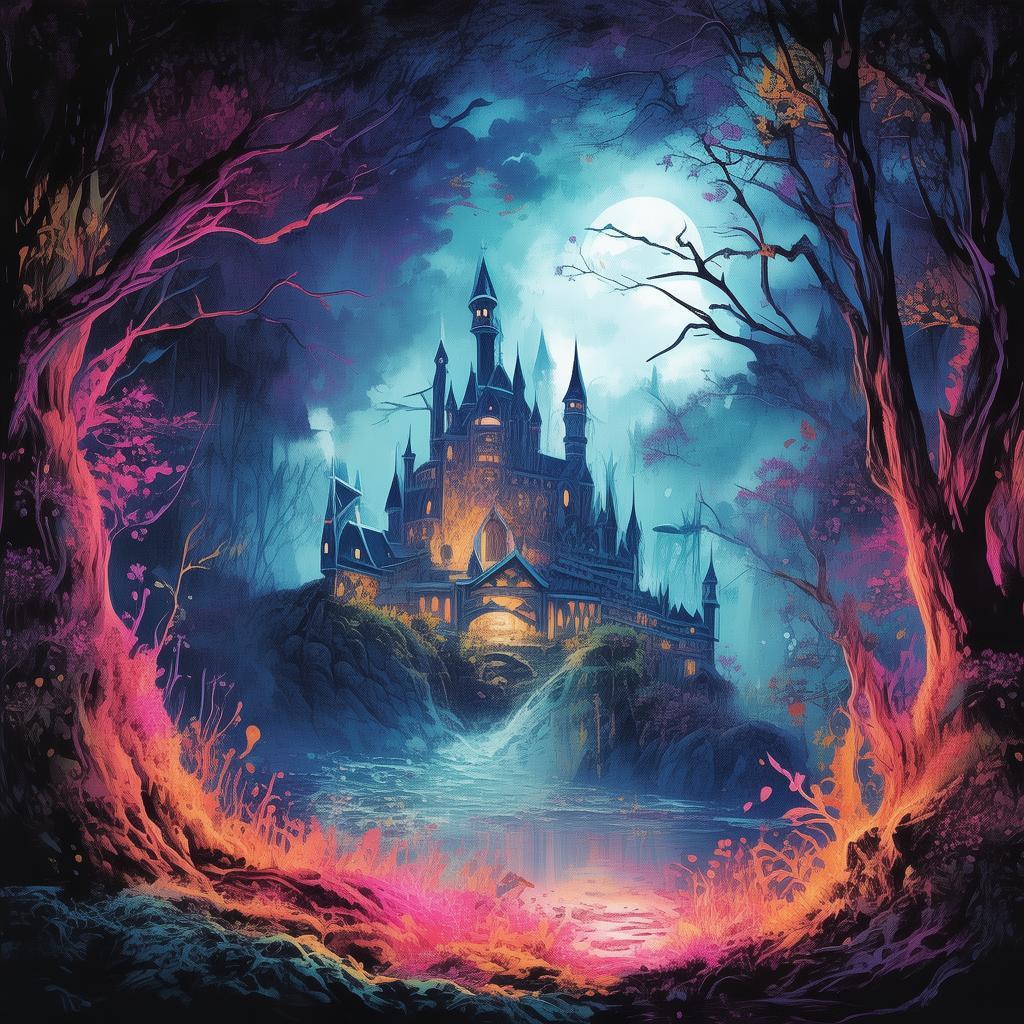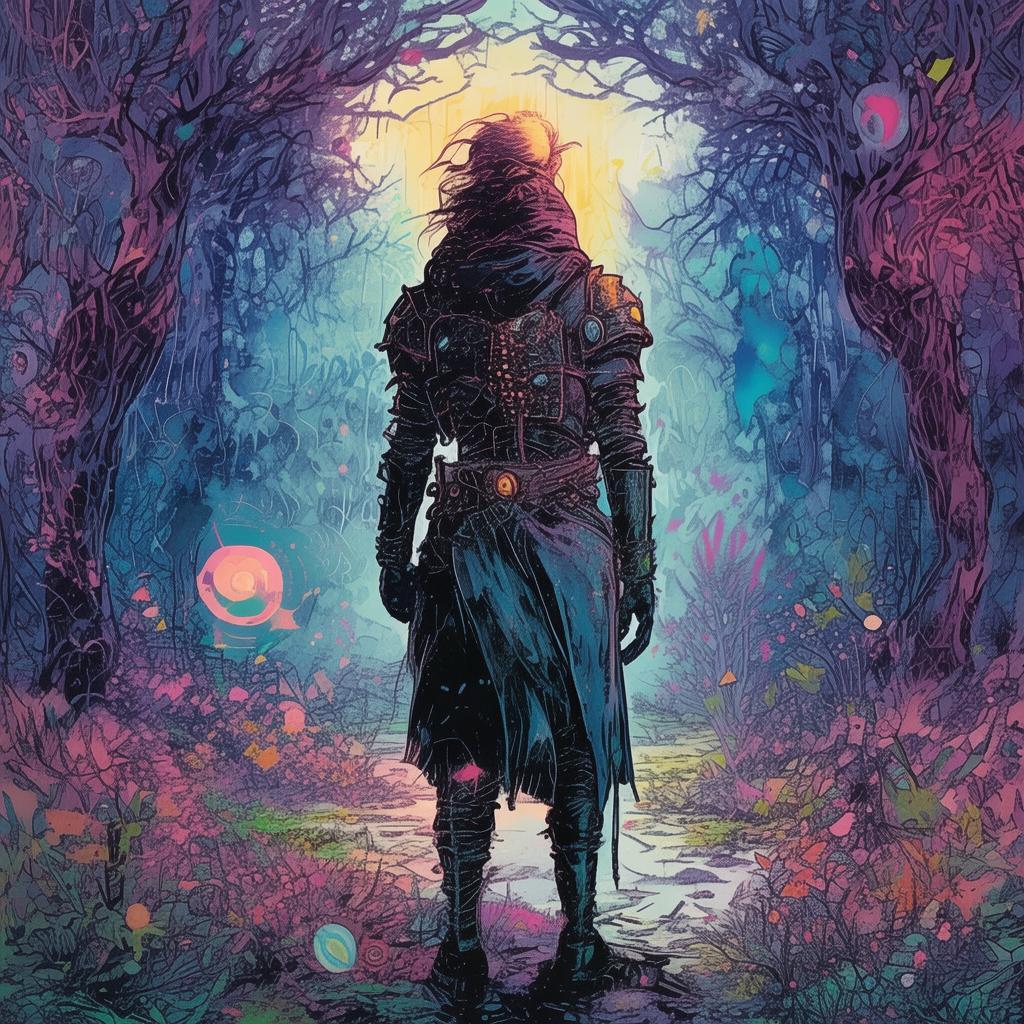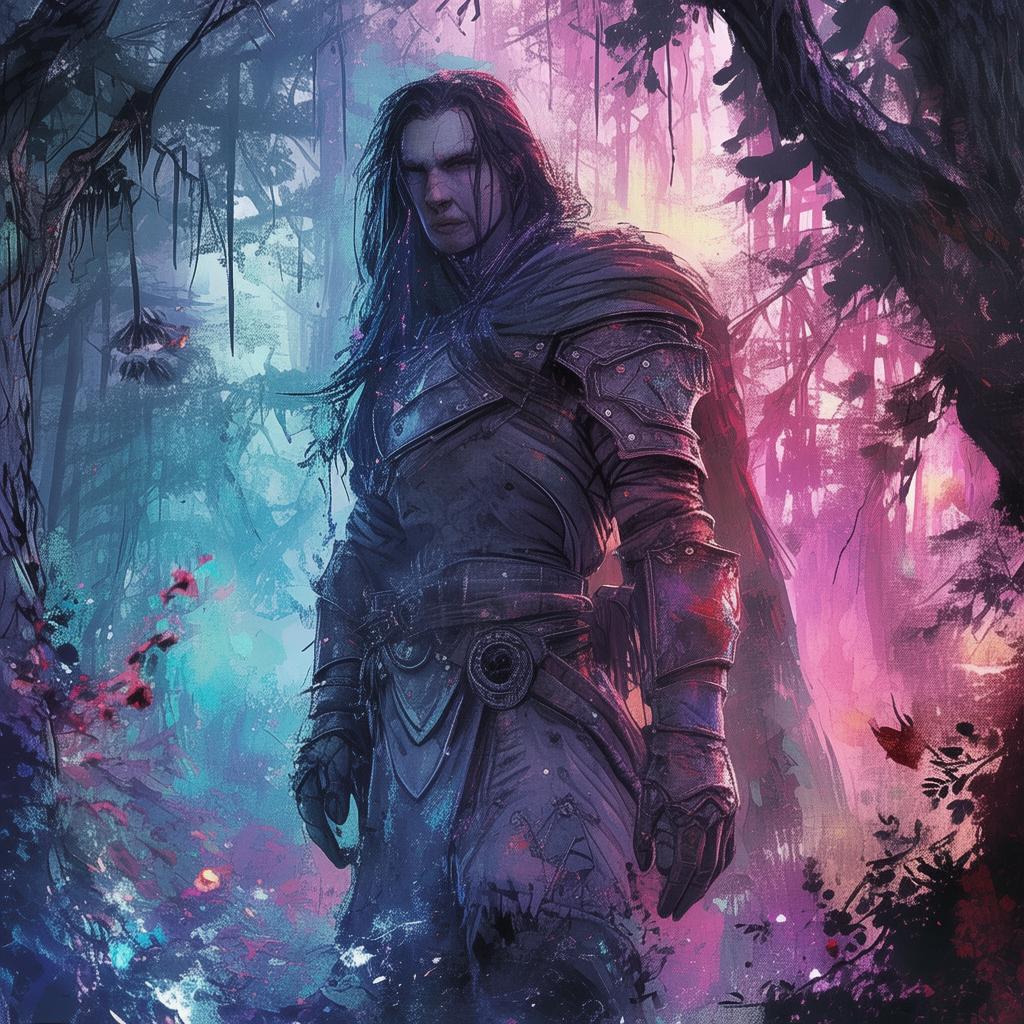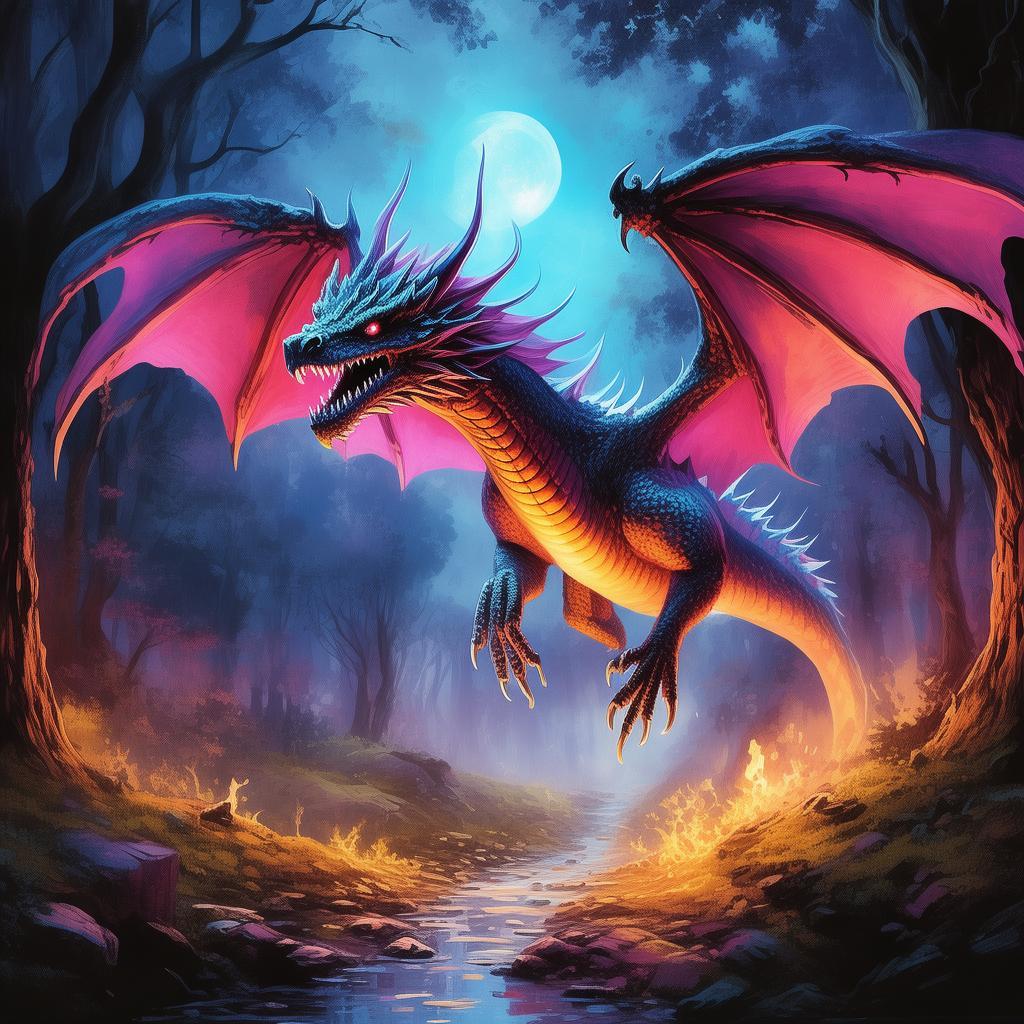The Whispers of the Golden Wave
In the heart of the ancient Chinese province of Zhejiang, where the Yangtze River meets the East China Sea, lay the town of Hangzhou. It was a place of beauty and prosperity, a canvas of art and culture that had been shaped by the ebb and flow of the Qiantang River's golden waves. Among the artists who painted this picture was Liang Qing, a master of traditional Chinese painting whose works were said to possess the power to stir the soul.
The year was 1644, the end of the Ming Dynasty, and a time of great unrest. The Qiantang's Canvas, as it was known, was a tapestry of life and legend, woven from the threads of every painter who had dared to capture its essence. It was said that the river's true power lay in its ability to grant prophecies, but only to those who were pure of heart and true of spirit.
Liang Qing had heard tales of the Qiantang's prophecies all his life. They were whispered among the people, etched into the ancient scrolls that adorned the walls of his studio, and whispered by the old river guardians who watched over the river's mysteries. One such prophecy spoke of a time when the river would call for a sacrifice of art to save it from an ancient curse.
As the war raged and the Ming Dynasty crumbled, Liang Qing found himself at a crossroads. His family had been artists for generations, and he was determined to preserve their legacy. Yet, as he gazed upon his latest masterpiece, a painting of the Qiantang's Golden Wave, he felt a strange pull, as if the river itself were calling to him.
One evening, as the moon cast a silver glow upon the river, Liang Qing met with an old river guardian named Wu. Wu was a man of few words, his eyes deep and wise as the river's currents. He handed Liang Qing an ancient scroll, its pages yellowed with age, and spoke of a ritual that must be performed to break the curse. The ritual required the sacrifice of the most beautiful painting Liang Qing had ever created, and in doing so, the river would bestow upon him the power to protect his family and his art.
Intrigued and haunted by the prospect, Liang Qing began to work tirelessly on his next masterpiece. It was to be a painting that would capture the essence of the Qiantang's power, a work that would speak to the river itself. As the days turned into weeks, his painting became a mirror to the river, reflecting its beauty and its fury.
But as the river's waters grew more turbulent, so did Liang Qing's mind. He questioned whether he could bear to sacrifice his creation, his legacy, to save his family. He sought counsel from his mentor, the great Master Hu, who had once been a guardian of the Qiantang's Canvas. Master Hu, with his piercing gaze and knowing smile, saw through Liang Qing's doubt.

"You must remember, Qing," Master Hu said, "that art is not just a creation of the hand; it is a creation of the soul. If you truly love your family, you must be willing to let go of your art to save them. The river will understand."
With renewed resolve, Liang Qing finished his painting. It was a masterpiece that captured the very spirit of the Qiantang, a painting that seemed to breathe with life. He performed the ritual as the old river guardian had instructed, placing the painting at the edge of the river's bank, where the golden waves crashed against the shore.
As the first wave of the Qiantang's Golden Wave struck the painting, Liang Qing felt a surge of energy flow through him. The painting began to glow with a strange, ethereal light, and the river's waters seemed to calm. The old river guardian, Wu, appeared at Liang Qing's side, his face alight with relief.
"The curse has been lifted," Wu announced. "Your painting has saved the river, and with it, your family."
But as the glow faded and the river returned to its usual rhythm, Liang Qing noticed something strange. The painting was no longer in his hands. It had been absorbed by the river, becoming a part of the Qiantang's Canvas, forever changed by the artist's sacrifice.
For days, Liang Qing wandered the banks of the river, his heart heavy with loss. But as he walked, he noticed something: the river had never looked more vibrant, more alive. The people of Hangzhou felt a new sense of hope and safety, and Liang Qing realized that his art had not been lost; it had become a part of the river's very soul.
The tale of Liang Qing and the Whispers of the Golden Wave spread far and wide, becoming a legend that would be told for generations. It was said that whenever the Qiantang's Golden Wave surged with greater might than usual, it was a sign that the river had been touched by the spirit of Liang Qing, and that his art would never truly be lost.
And so, the Qiantang's Canvas continued to be a source of inspiration and strength, a testament to the power of art and the enduring bond between humanity and the natural world.
✨ Original Statement ✨
All articles published on this website (including but not limited to text, images, videos, and other content) are original or authorized for reposting and are protected by relevant laws. Without the explicit written permission of this website, no individual or organization may copy, modify, repost, or use the content for commercial purposes.
If you need to quote or cooperate, please contact this site for authorization. We reserve the right to pursue legal responsibility for any unauthorized use.
Hereby declared.









